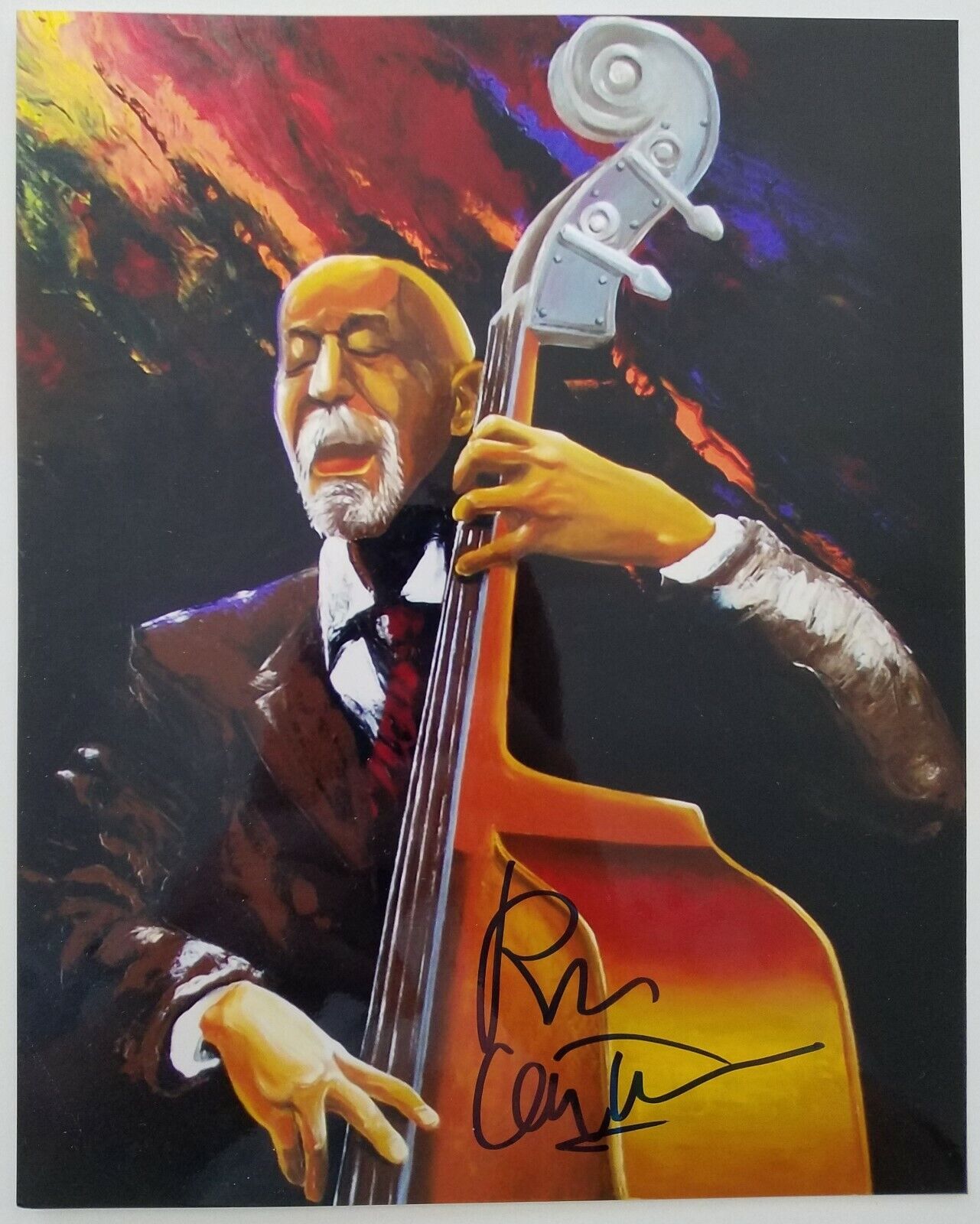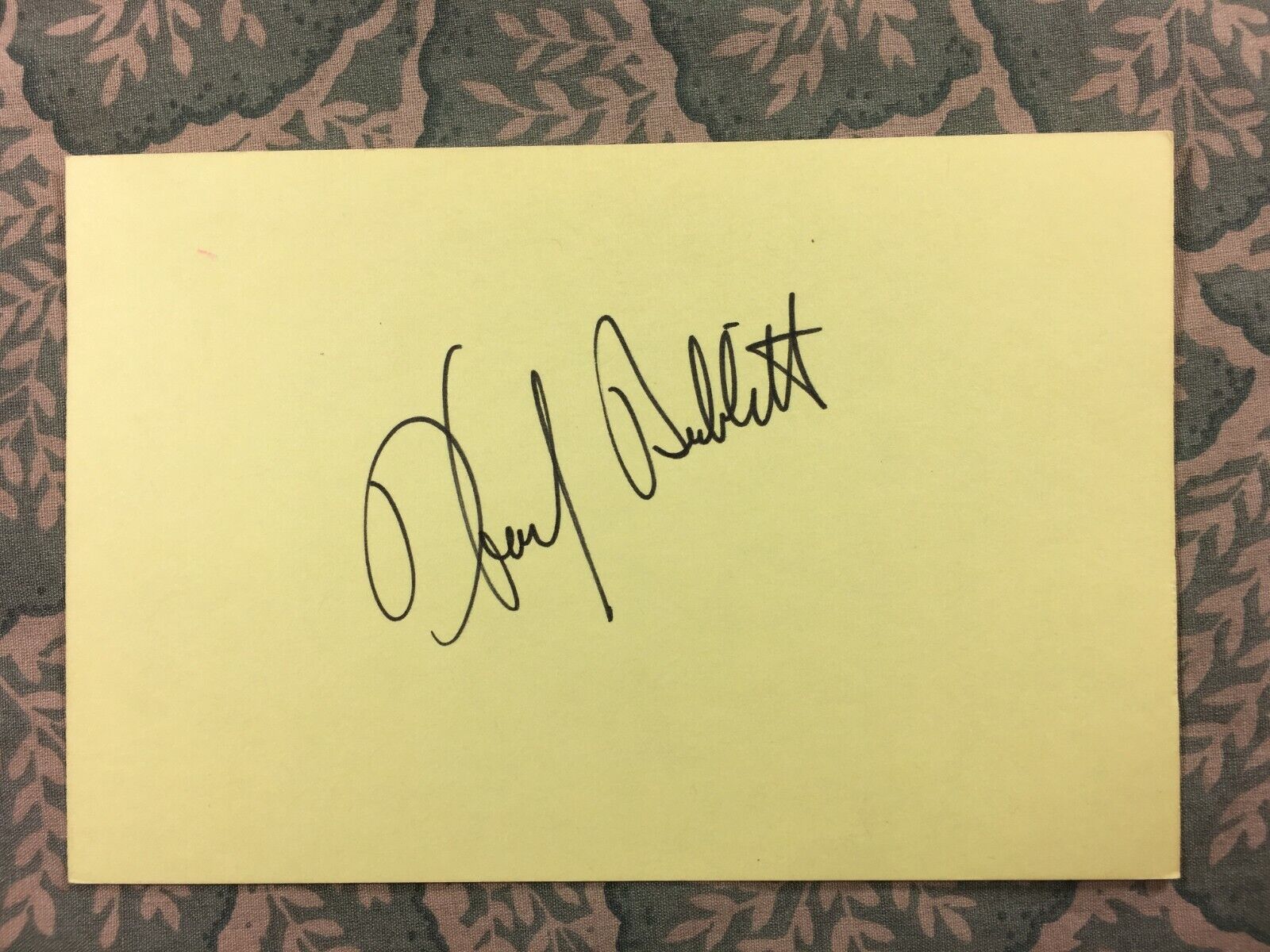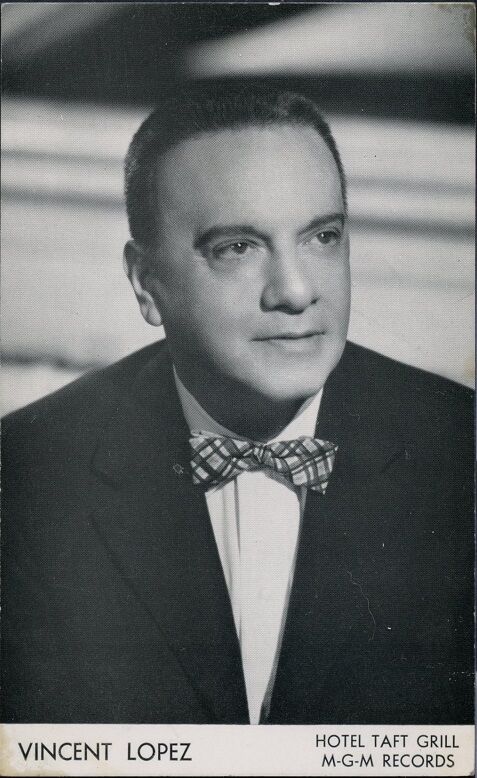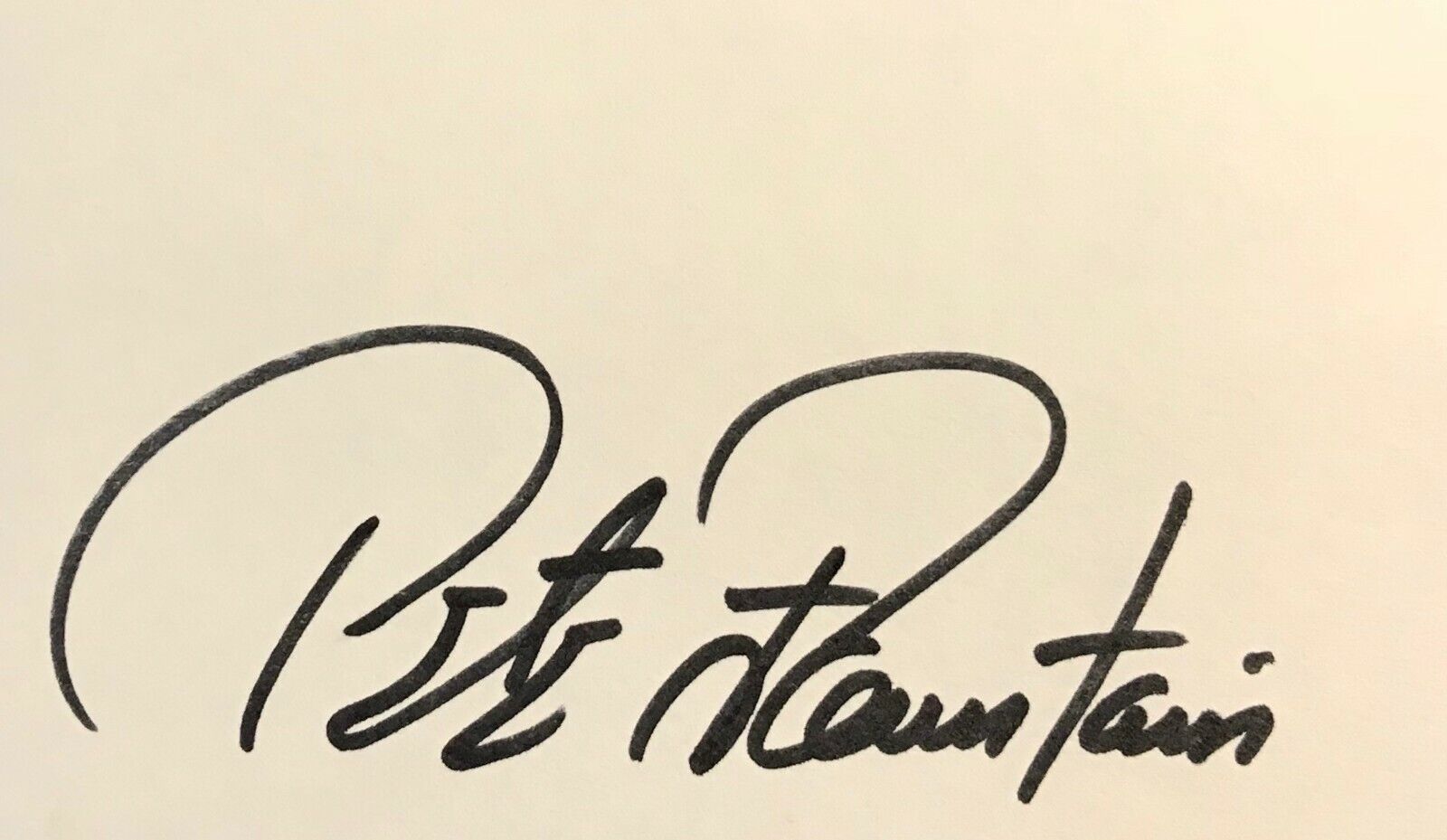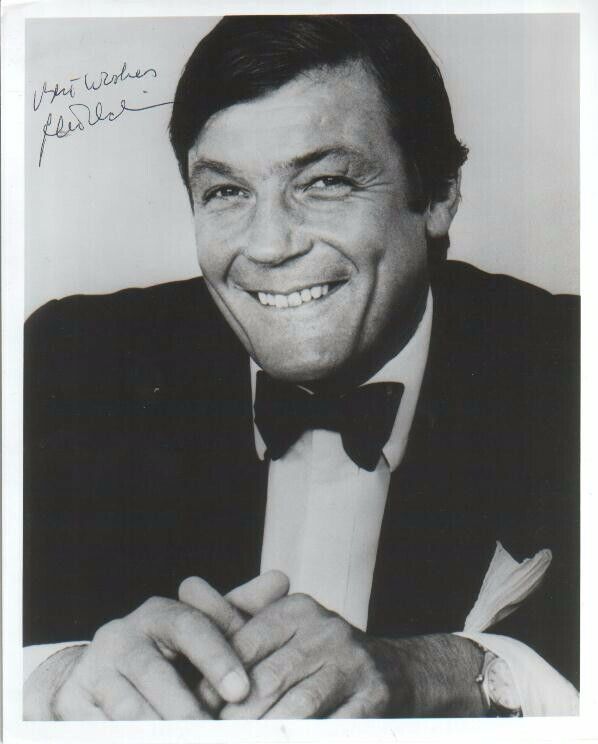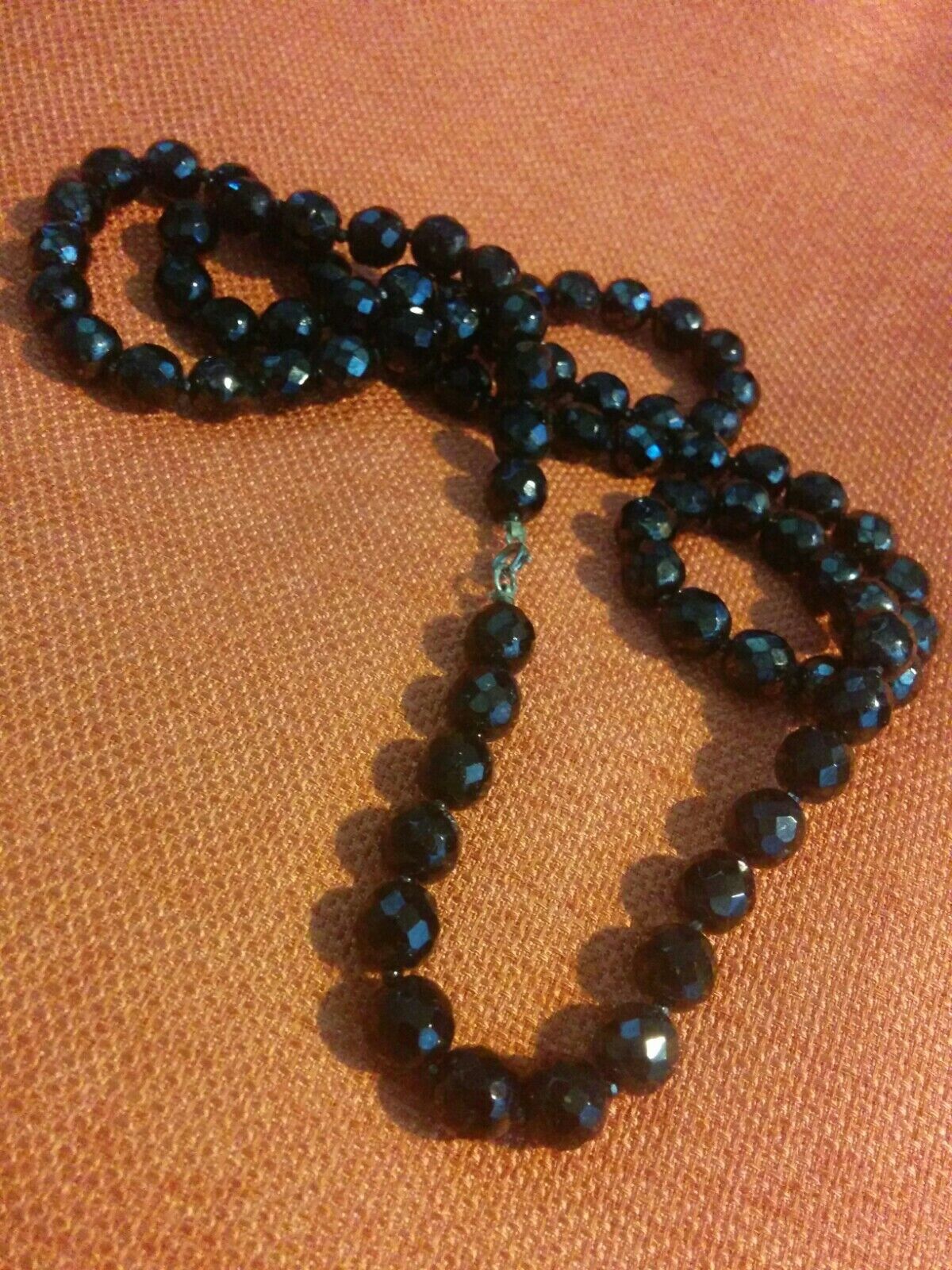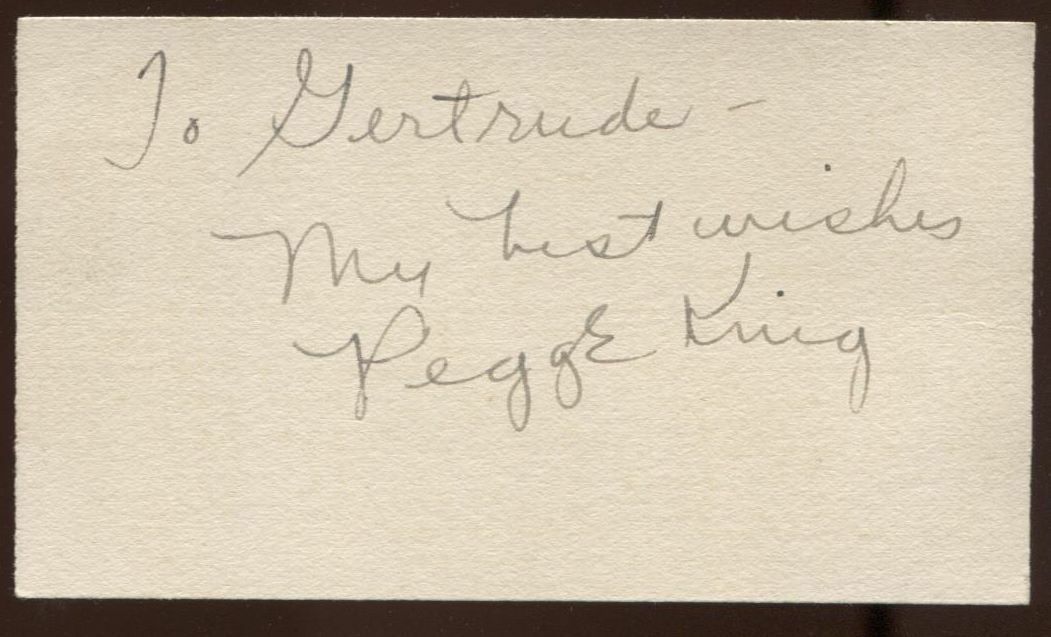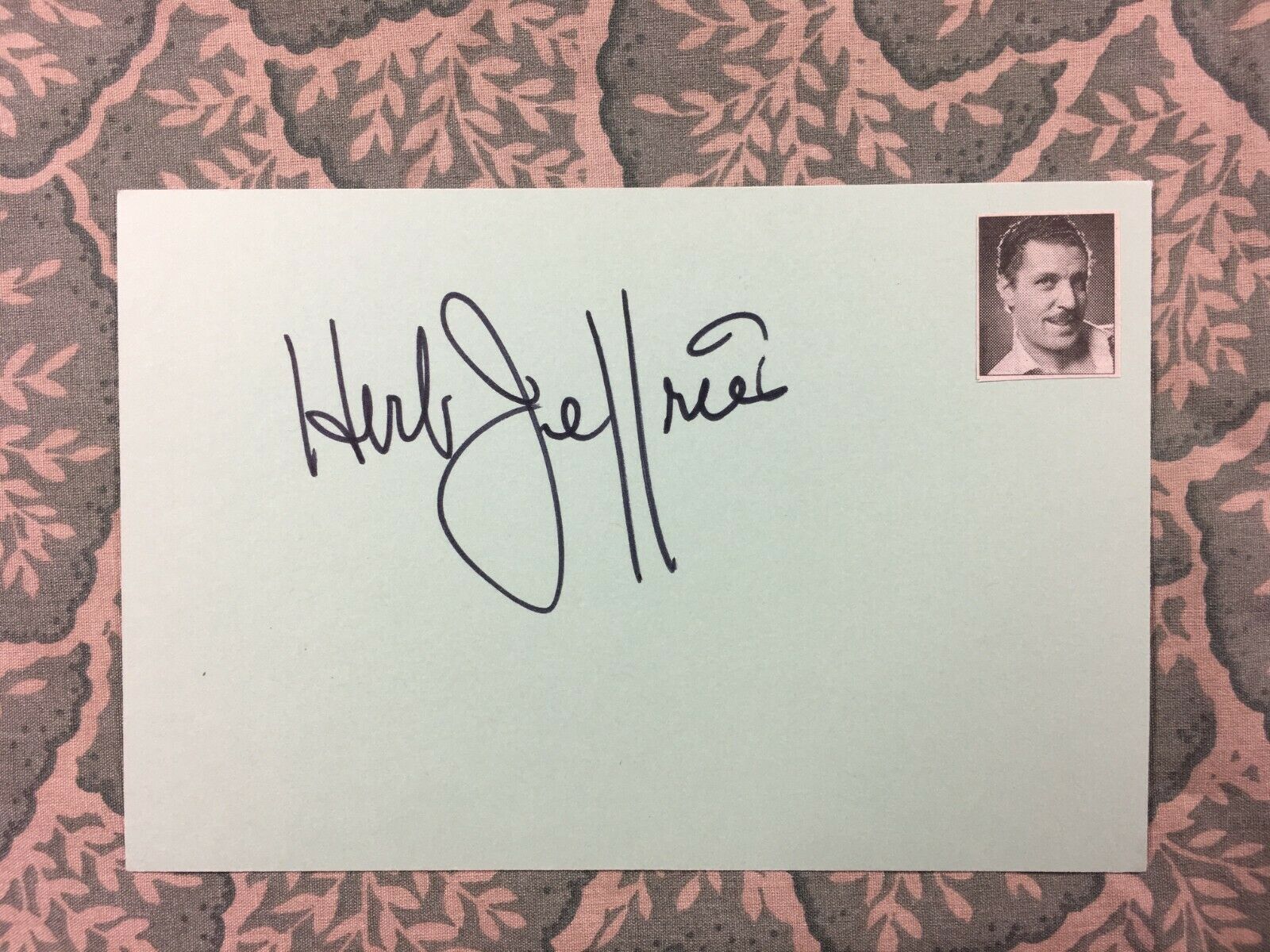-40%
AL HIRT “JAVA” SIGNED TRIMMED CARD
$ 7.91
- Description
- Size Guide
Description
Offered here is a trimmed card signed by the late Al Hirt.The card measures 4 1/8 by 3 inches.
I am selling my collection of autographs that I have purchased several years ago from an array of sources – from eBay sellers, from dealers with professional credentials, and from the signers themselves via the mail. Some came with COA’s; most did not. When I obtained these signatures, I believed them to be genuine and I believed that they were genuine when I posted them on Ebay.
I have received opinions from others, including PSA/DNA whose opinion I sought, indicating that some of the signatures that I have posted were not likely to be genuine. I have pulled those questionable signatures, and will not post them for sale again in the future. It is not my intention to sell autographs that are not authentic, and I will continue do my best to try to ensure that the signatures that I am offering are genuine. As indicated below, all signatures that I sell come with a money-back guarantee if they are judged to be of doubtful authenticity.
If the signature or signatures is/are determined to be inauthentic by a well-recognized autograph expert, this item may be returned for a full refund.
For those who'd prefer a different form of shipping, please contact me so that we can discuss what your shipping charges might be.
NOTE TO INTERNATIONAL BUYERS:
As of January 1, 2021, eBay collects a VAT (Value Added Tax) for the Customs bureau of that country. Some countries charge an exorbitant 20% VAT. Some countries make distinctions for historical documents such as autographs, and charge a more reasonable 5% VAT. PLEASE CHECK WITH CUSTOMS IN THE COUNTRY YOU RESIDE IN REGARDING A VAT AND WHAT THAT TAX WILL BE FOR THE ITEM YOU WISH TO PURCHASE FROM ANY SELLER.
Short Bio:
Alois Maxwell "Al" Hirt (November 7, 1922 – April 27, 1999) was an American trumpeter and bandleader. He is best remembered for his million-selling recordings of "Java" and the accompanying album Honey in the Horn (1963), and for the theme song to The Green Hornet. His nicknames included "Jumbo" and "The Round Mound of Sound". Colin Escott, an author of musician biographies, wrote that RCA Victor Records, for which Hirt had recorded most of his best-selling recordings and for which he had spent much of his professional recording career, had dubbed him with another moniker: "The King." Hirt was inducted into The Louisiana Music Hall of Fame in November 2009.
Hirt was born in New Orleans, Louisiana, the son of a police officer. At the age of six, he was given his first trumpet, which had been purchased at a local pawnshop. He would play in the Junior Police Band with the children of Alcide Nunez, and by the age of 16, Hirt was playing professionally, often with his friend Pete Fountain. During this time, he was hired to play at the local horse racing track, beginning a six-decade connection to the sport.
In 1940, Hirt went to Cincinnati, Ohio, to study at the Cincinnati Conservatory of Music with Dr. Frank Simon (a former soloist with the John Philip Sousa Orchestra). After a stint as a bugler in the United States Army during World War II, Hirt performed with various swing big bands, including those of Tommy Dorsey, Jimmy Dorsey, Benny Goodman, and Ina Ray Hutton.
In 1950, Hirt became first trumpet and featured soloist with Horace Heidt's Orchestra. After spending several years on the road with Heidt, Hirt returned to New Orleans working with various Dixieland groups and leading his own bands. Despite Hirt's statement years later "I'm not a jazz trumpeter and never was a jazz trumpeter", he made a few recordings where he demonstrated his ability to play in that style, during the 1950s with bandleader Monk Hazel, and a few other recordings on the local Southland Records label.
Hirt's virtuoso dexterity and fine tone on his instrument soon attracted the attention of major record labels and he signed with RCA Victor. Hirt posted twenty-two albums on the Billboard charts in the 1950s and 1960s. The albums Honey in the Horn and Cotton Candy were both in the Top 10 best sellers for 1964, the same year Hirt scored a hit single with his cover of Allen Toussaint's tune "Java" (Billboard No. 4), and later won a Grammy Award for the same recording. Both Honey in the Horn and "Java" sold over one million copies, and were awarded gold discs.
Hirt's Top 40 charted hit "Sugar Lips" in 1964 would be later used as the theme song for the NBC daytime game show Eye Guess, hosted by Bill Cullen and originally airing from January 1966 to September 1969.
Hirt was chosen to record the frenetic theme for the 1960s TV show The Green Hornet, by famed arranger and composer Billy May. Thematically reminiscent of Nikolai Rimsky-Korsakov's Flight of the Bumblebee, it showcased Hirt's technical prowess. The recording again gained public attention in 2003 when it was used in the film Kill Bill.
From the mid-1950s to early 1960s, Hirt and his band played nightly at Dan's Pier 600 at the corner of St. Louis and Bourbon Street. The club was owned by his business manager, Dan Levy, Sr.
In 1962 Hirt opened his own club on Bourbon Street in the French Quarter, which he ran until 1983. He also became a minority owner in the NFL expansion New Orleans Saints in 1967.
In 1962, in an effort to showcase him in a different musical setting, Hirt was teamed with arranger and composer Billy May and producer Steve Sholes to record an album titled Horn A Plenty that was a departure from the Dixieland material that he was generally associated with. Covering an eclectic variety of popular, standard and show tunes, it featured a big-band supplemented by timpani, French horns and harp. He also appeared opposite Troy Donahue and Suzanne Phlesette in the 1962 motion picture, "Rome Adventure."
In 1965, he hosted the hour-long television variety series Fanfare, which aired on CBS as a summer replacement for Jackie Gleason and the American Scene Magazine.
Hirt starred along with the University of Arizona marching band at the first Super Bowl halftime show in 1967.
On February 8, 1970, while performing in a Mardi Gras parade in New Orleans, Hirt was injured while riding on a float. It is popularly believed that he was struck in the mouth by a thrown piece of concrete or brick. Factual documentation of the details of the incident is sparse, consisting primarily of claims made by Hirt after the incident. Whatever the actual cause of his injuries, Hirt underwent surgery and made a return to the club scene. This incident was parodied in a Saturday Night Live skit from their second season Mardi Gras special, the "Let's Hit Al Hirt in the Mouth with a Brick Contest".
In 1987, Hirt played a solo rendition of "Ave Maria" for Pope John Paul II's visit to New Orleans. He is referred to in the 1987 film Good Morning, Vietnam, in a broadcast made by Lieutenant Hauk (Bruno Kirby).
Hirt died of liver failure at the age of 76, after having spent the previous year in a wheelchair due to edema in his leg. He was survived by his wife, Beverly Essel Hirt, and six children from a previous marriage. From last.fm

